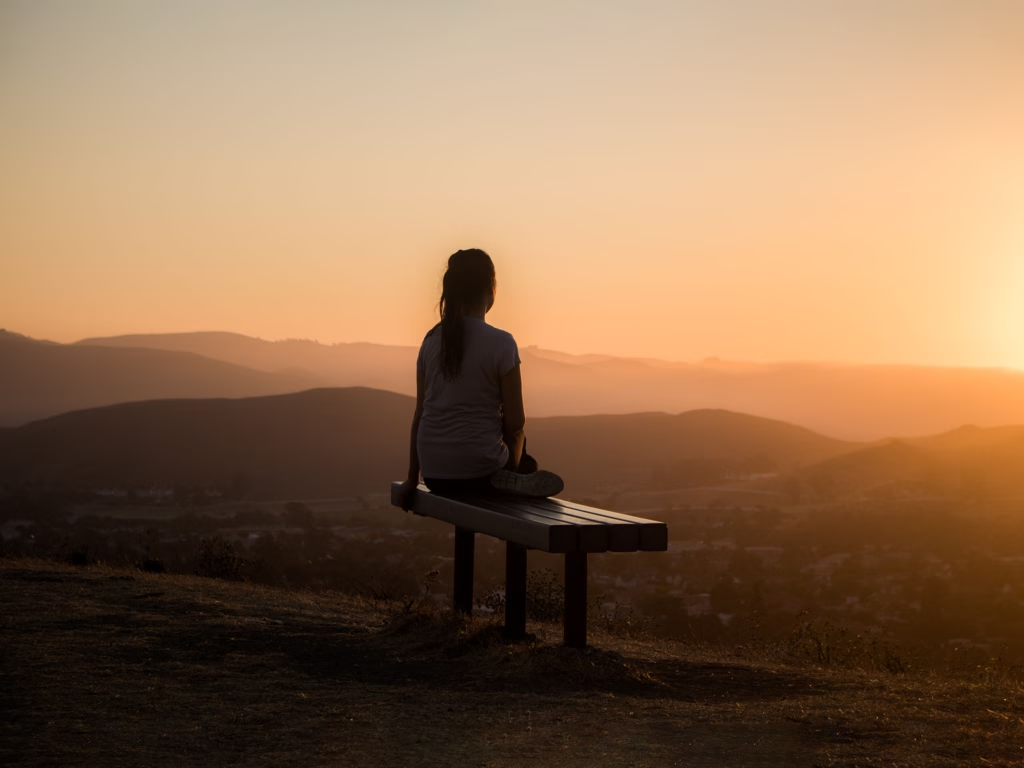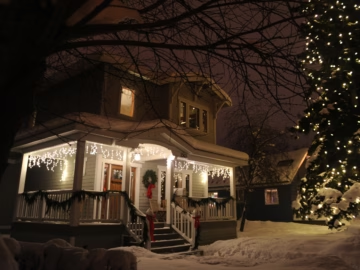
This is what the Lord says: ‘Stand at the crossroads and look; ask for the ancient paths, ask where the good way is, and walk in it, and you will find rest for your souls, …
Jeremiah 6:16a
All of us long for rest, yet a sense of restlessness pervades the experience of life, particularly during this difficult stretch of time we are living through. Wars, injustice, racism, politicization, COVID – all in addition to the everyday responsibilities of life – bring about a sense of weariness, anxiety, and fear. We are tired. Rest is needed more than ever before, but the usual attempts to find rest will only serve to perpetuate restlessness unless a deeper vision and experience of rest is embraced.
What is Rest?
Humanity was created for rest, but rest of a different kind from what is typically understood and practiced. Rest is commonly pictured as passivity and inactivity – a place to recover from the activity of life. If you’re like most, the word ‘rest’ brings up images of a favorite spot to take a nap, turning on a streaming service to zone out, or the desire to mentally check out from the stress of life. Notice how these ideas move from a place of activity to inactivity.
This is very different from the way the Bible talks about rest, which has less to do with an inactive break from the activity of life, and more to do with a way of being in the world woven into the fabric of creation itself. The writer of Genesis introduces this idea of rest in the creation story when he writes that God rested. The writer uses the Hebrew word šāḇaṯ, which is translated Sabbath.
What has become one day each week was always intended to be a way of life. In Eden, Sabbath was it. As the writer of Genesis puts it, “The heavens and earth were completed in all their vast array” (Gen 2:1). Creation was complete, and rest – or Sabbath – was not simply reserved for a day. It was a way of existence meant for all of creation, grounded in the “it is good” of God. Maybe this is what Jeremiah is referring to when he mentions “the ancient paths?”
Trusting in the Goodness of God
If the Sabbath found in Eden was the intended existence grounded in the goodness of God, then the fall in Genesis 3 sees humanity rebel against it. We will not find this rest again until we form a vision and practice of rest based on the way of Sabbath. It is a way of life grounded in the goodness of God.
Here is a question: Can you believe in the goodness of God? Not ‘do’ you, but ‘can’ you? The first is a question of the mind and is easy to ascent to, the second is a question of the heart. Underneath the wars and violence and sickness and hatred and personal fears, can you believe the goodness of God is what is holding all things together? Can you believe there is a deeper reality supporting and sustaining us in the chaos?
Julian of Norwich is famous for saying, “all shall be well, and all shall be well, and all manner of things shall be well.” Julian believed in the goodness of God in the midst of the 100 Years war and several plagues that ravaged her generation.
Rest will continue to be an elusive ideal until we surrender ourselves to the truth that underneath the roaring of the world is the rule of Christ. Before the breaking of the world given to us in Genesis 3 is the created goodness of the world in Genesis 1-2. Our broken world is forever sustained by the steadfast goodness of God.
Finding rest is finding peace, and the Brethren in Christ have a history of being people of peace. Said another way, they have been a people at peace. The early Anabaptists weren’t at peace because of their situation. They were being slaughtered. Yet, they were at peace because they were following behind the Good Shepherd.
As I think of our world, I continue to wonder if one of the greatest witnesses of the church during this time of upheaval isn’t a people who are at peace, who have found a way to rest in a restless age.
Finding Rest
If you’re like me, it’s very easy to identify the place of restlessness. Personally, when I am restless, I feel a sense of elevated anxiety deep in my gut. I start to grasp for control in a way that suffocates life rather than allowing it to breathe. I quench the Spirit rather than drink deeply from the spring of living water. I don’t trust in the goodness of God; I trust in myself.
In my best moments, when I face such restlessness, I find a quiet space and prayerfully meditate on this question: Jesus, how do you want to tend to my heart and soul? It’s a question that helps me receive the presence of Jesus in my moment of anxiety and control, inviting me into a posture of surrender and trust to the care of Christ.
This question also frames my weekly experience of Sabbath. Asking this question helps me reflect on and identify what has happened throughout the week. It helps me keep a short account of what is happening in life, helping me to be more present. I ask such things as:
- What moments do I need Christ to enter into and bring healing?
- Where do I need Jesus to enter and bring me hope?
- What does Jesus have to teach me and show me that will shape me more and more into Christ-likeness?
Maybe it would be helpful for you to sit with this question. How does Christ want to tend to you today?
As you sit with this question, may Christ meet you and may you rest in the goodness of God.



